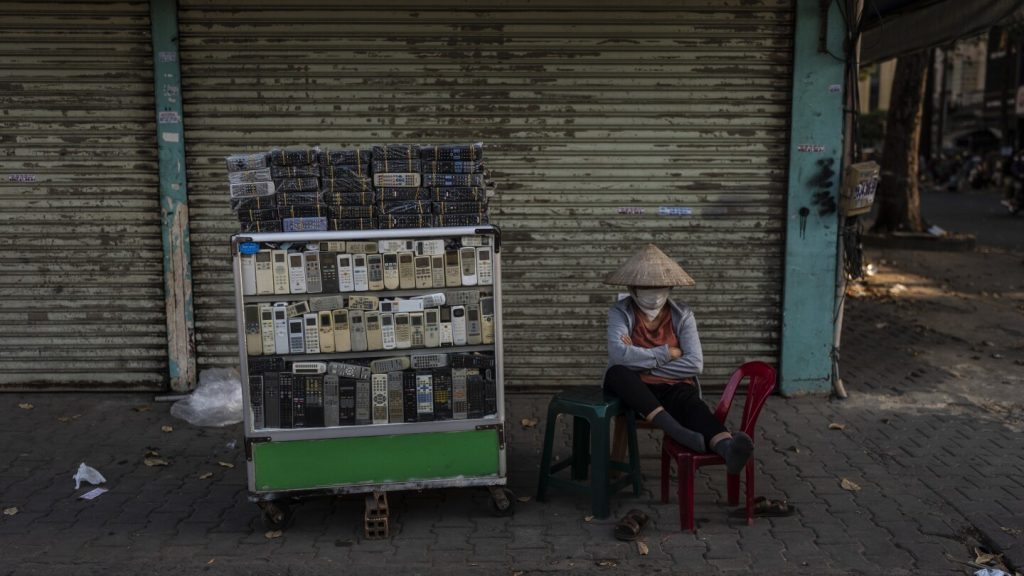Illegal e-waste recycling in Ho Chi Minh City, Vietnam is in the spotlight as informal waste workers like Dam Chan Nguyen salvage electronic devices for reuse or recycling. Nguyen’s work in Nhat Tao market involves repairing and salvaging items like laptops, mobile phones, and air conditioning units, diverting them from landfills. The bustling market reflects a global trend of increasing e-waste production, with 62 million metric tons generated in 2022 and projected to grow to 82 million metric tons by 2030. Asian countries contribute significantly to this mounting issue.
The management of e-waste is critical due to environmental and health hazards posed by improper disposal. Many informal waste workers like Nguyen play a role in recycling, as formal systems struggle to keep pace with the rising waste levels. Less than a quarter of electronic waste was properly collected and recycled in 2022, leaving a large portion of it in the hands of informal workers. Southeast Asian nations, in particular, lack formal collection and recycling systems for electronic waste, leading to a reliance on informal workers to handle the discarded items.
Nguyen, with years of experience in the field, works tirelessly to salvage electronic devices, often without proper protective gear. The demanding work involves dismantling potentially hazardous materials, exposing workers like Nguyen to health risks. The extreme heat in Ho Chi Minh City adds to the challenges faced by informal waste workers as they work long hours in hazardous conditions. Despite the lack of health benefits or job security, workers like Nguyen continue to persevere in this field to make a living.
Formal recycling companies use advanced machinery and processes to recycle electronic devices safely, recovering valuable resources like copper, gold, and rare earth minerals. However, informal recycling also plays a vital role in salvaging discarded electronics, preventing them from ending up in landfills. Collaborations between formal and informal waste workers could enhance the recycling process, providing better protections for informal workers and maximizing the recovery of resources from e-waste. Efforts to integrate informal workers into formal recycling systems aim to improve the sustainability of e-waste management.
In Vietnam, policies are in place to address e-waste management, with a national plan set up in 2020 to collect and treat electronic waste. The country aims to collect and treat 70% of e-waste by 2025, incorporating informal workers into formal systems to enhance their protections. Women waste collectors like Nguyen Thi Hoan play a crucial role in collecting scrap, including electronic waste, to earn a living. Despite the challenges they face, these collectors contribute to recycling efforts, highlighting the essential role of informal waste workers in managing e-waste in Vietnam.
Informal waste workers like Dam Chan Nguyen and Nguyen Thi Hoan are vital components of the e-waste recycling ecosystem in Ho Chi Minh City. Their work in salvaging, repairing, and recycling electronic devices helps divert valuable resources from landfills and contributes to sustainable waste management practices. With the support of formal recycling systems and collaborations between formal and informal workers, the recycling efforts in Vietnam can be enhanced, leading to better resource recovery and environmental protection in the face of rising e-waste levels globally.


